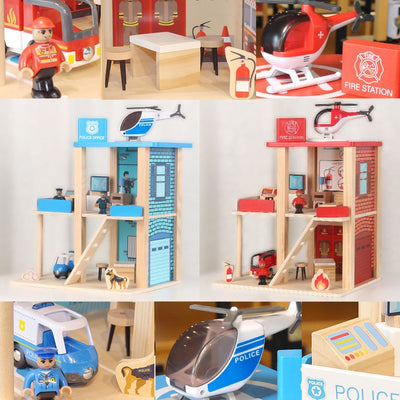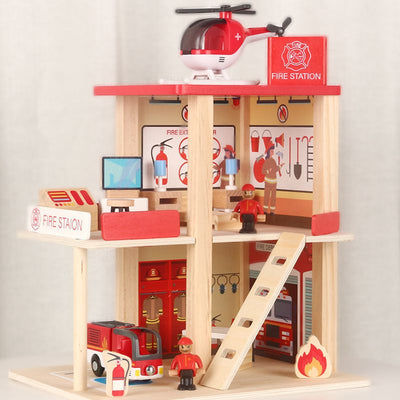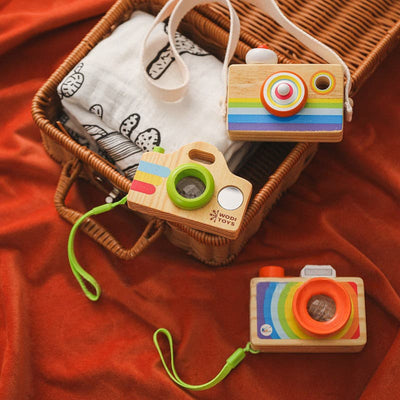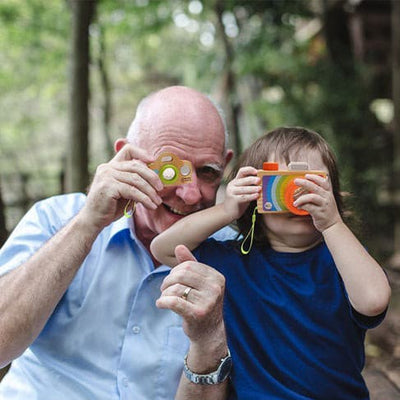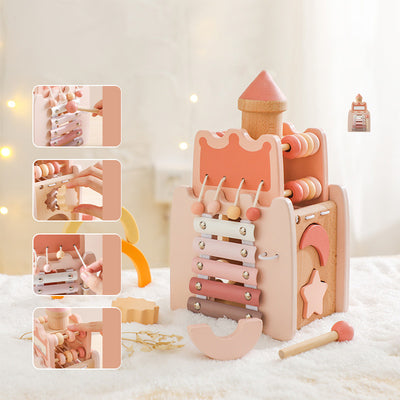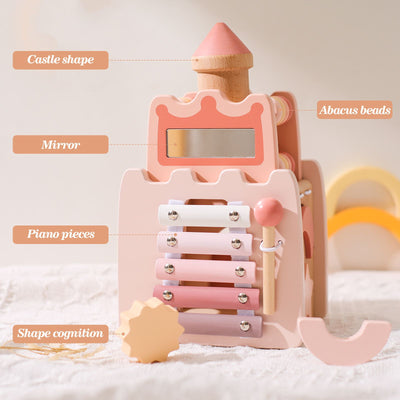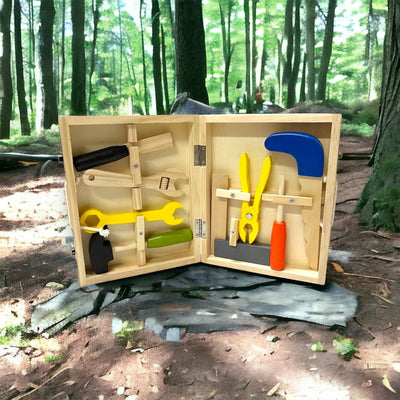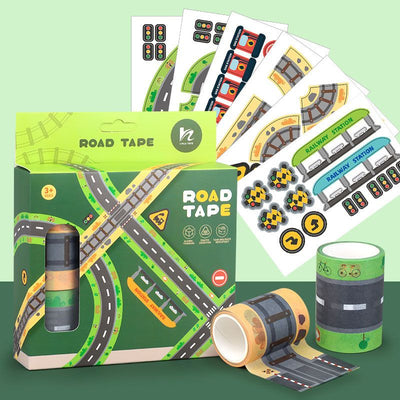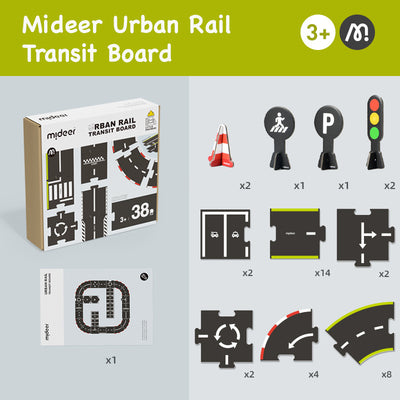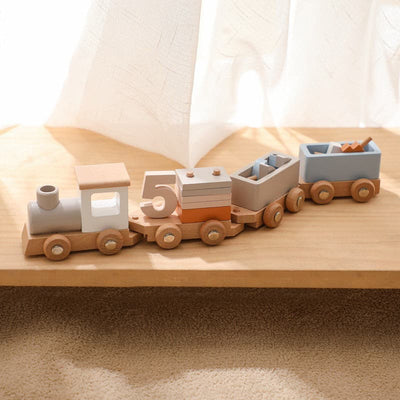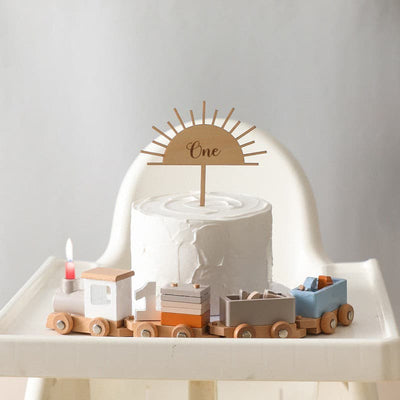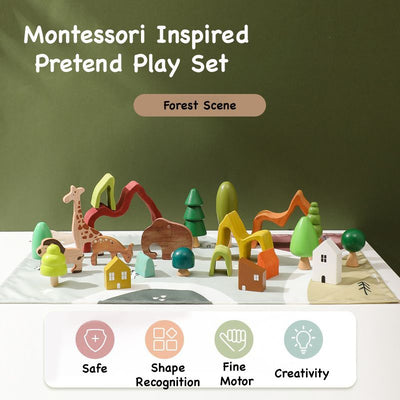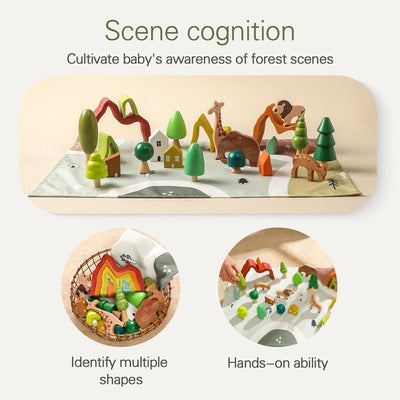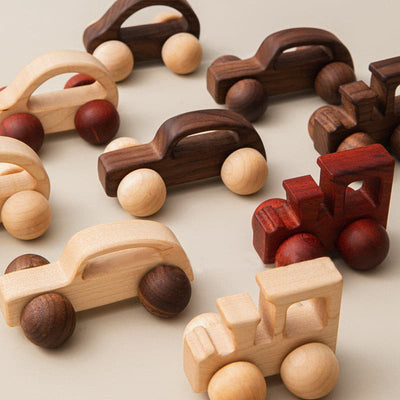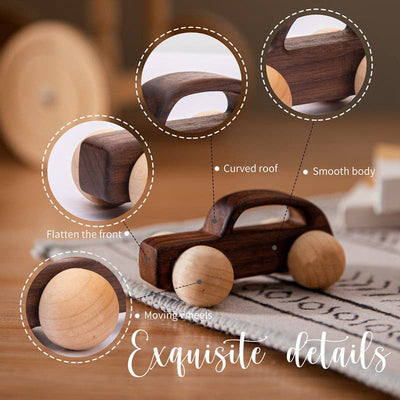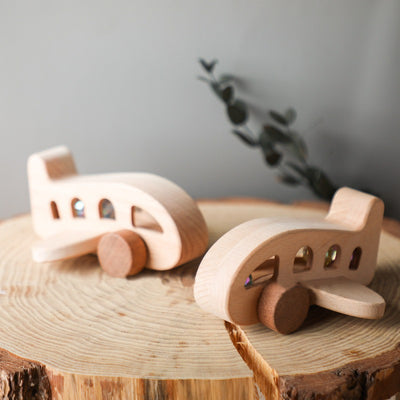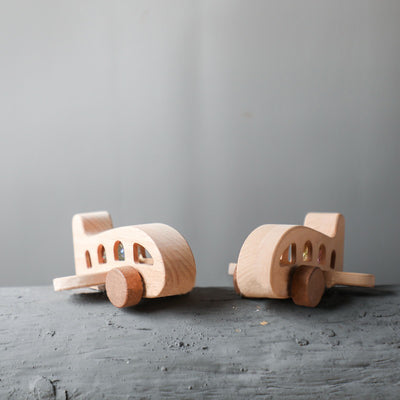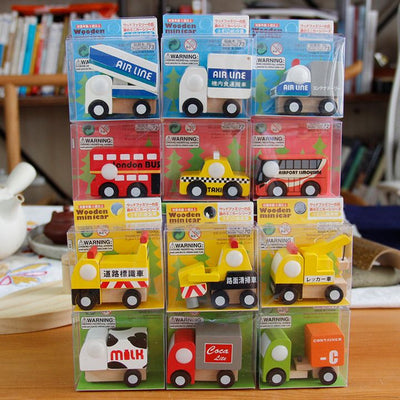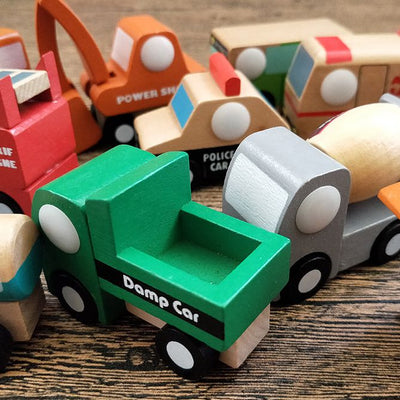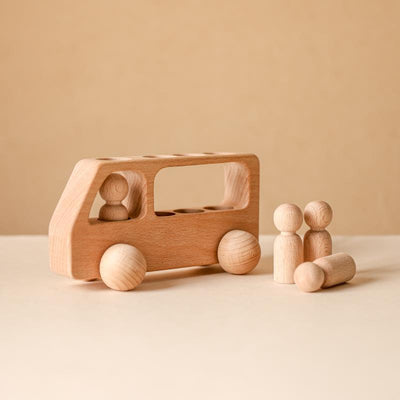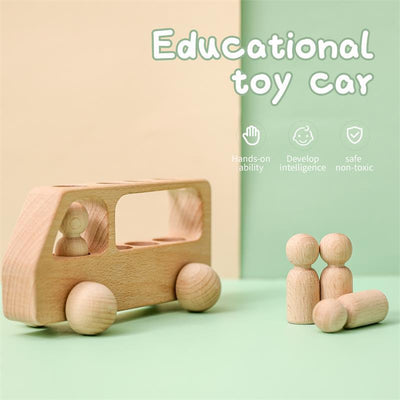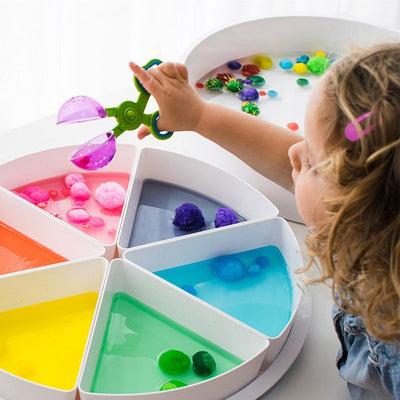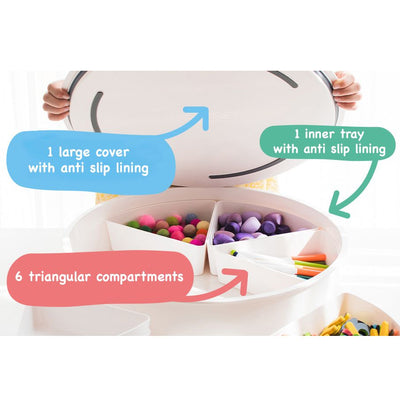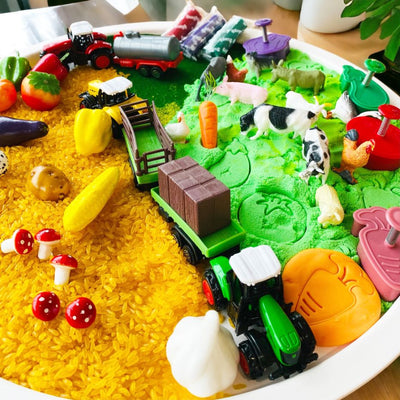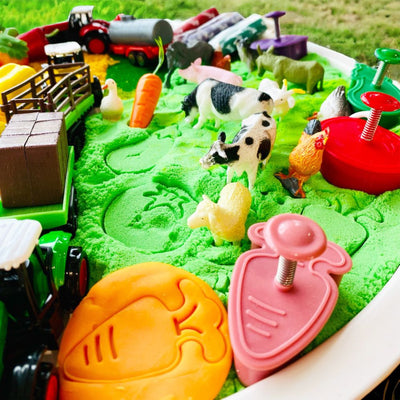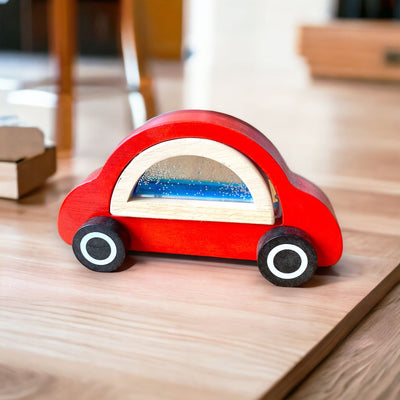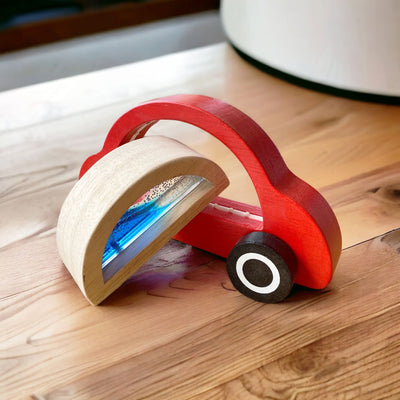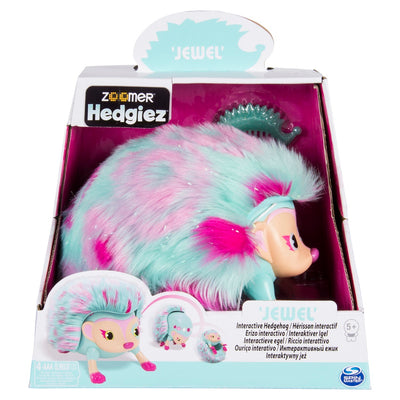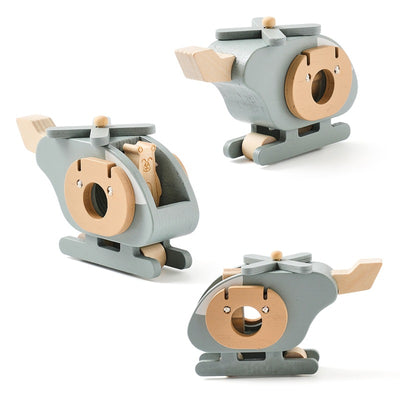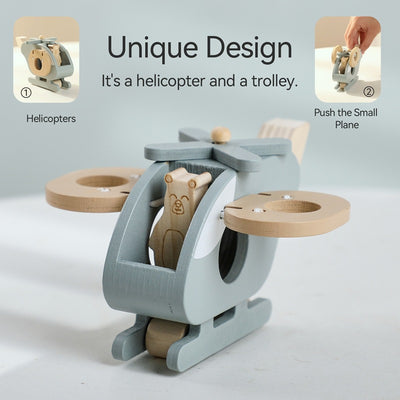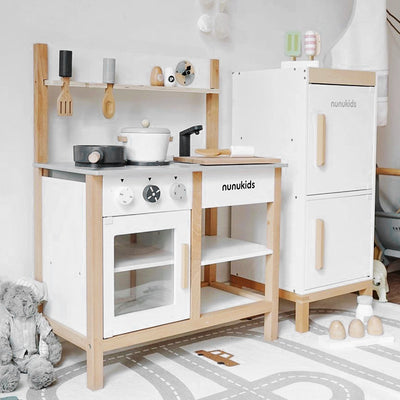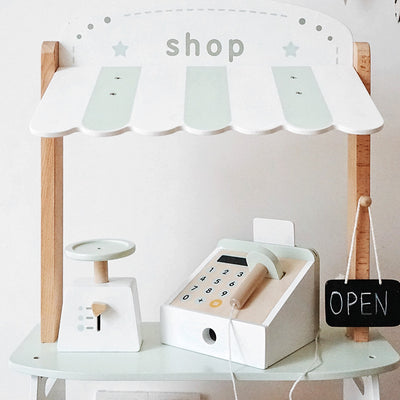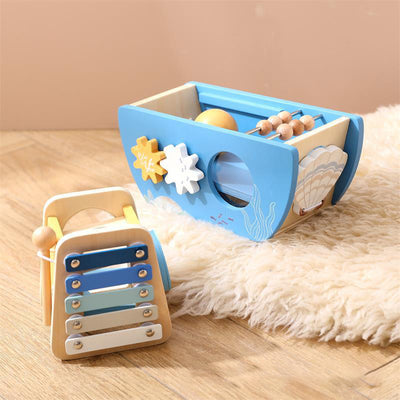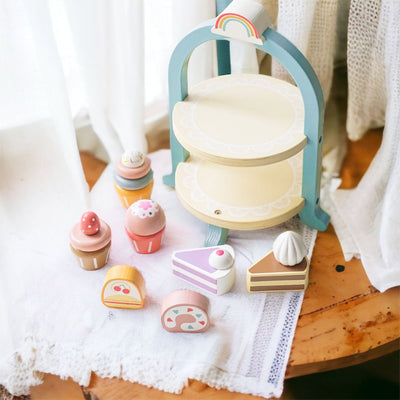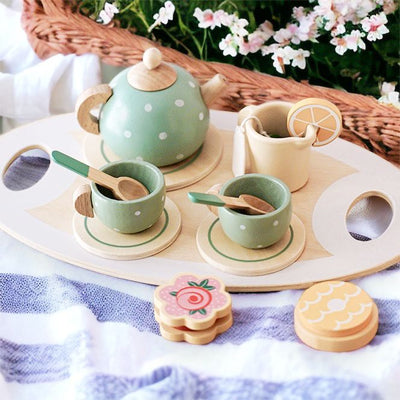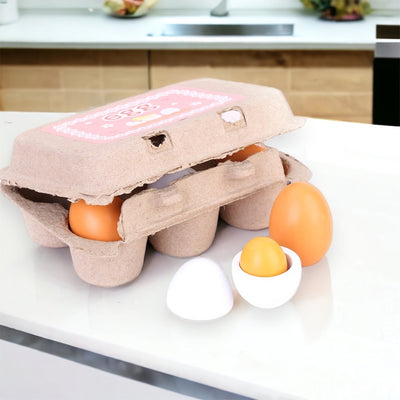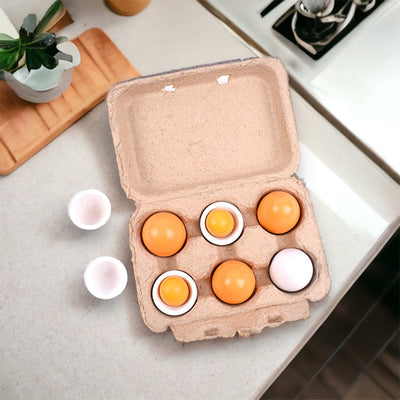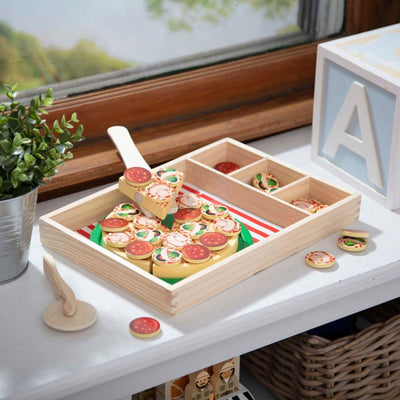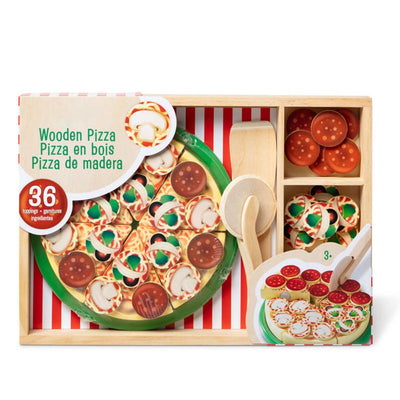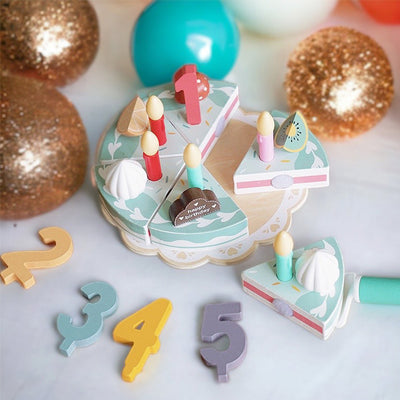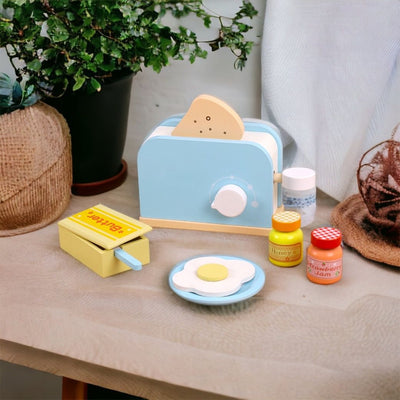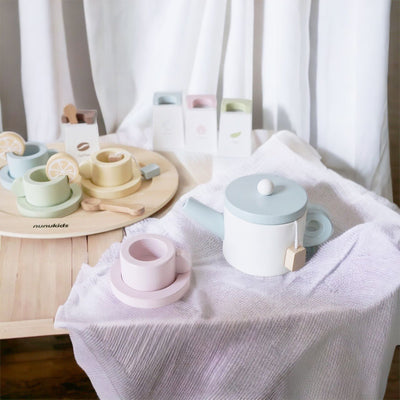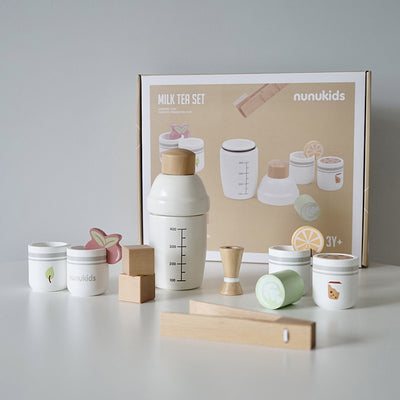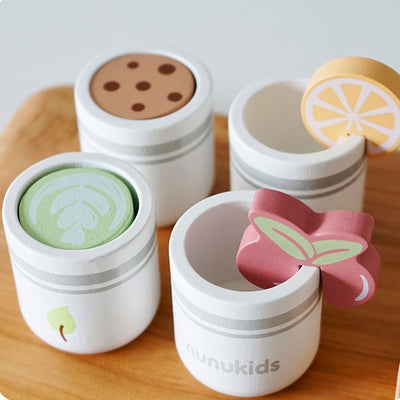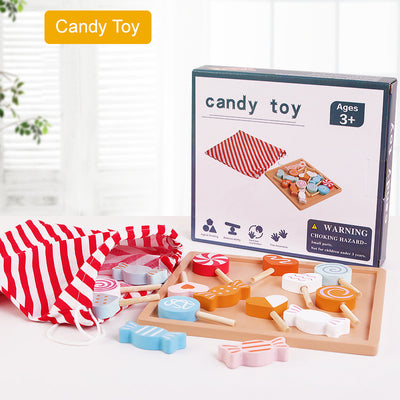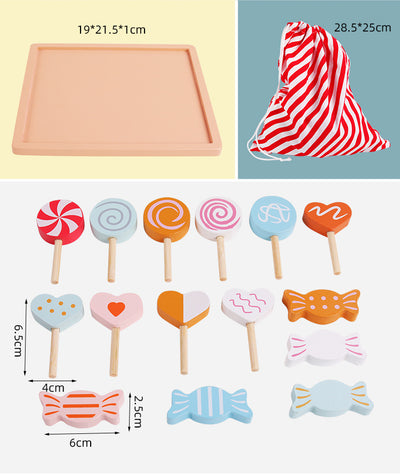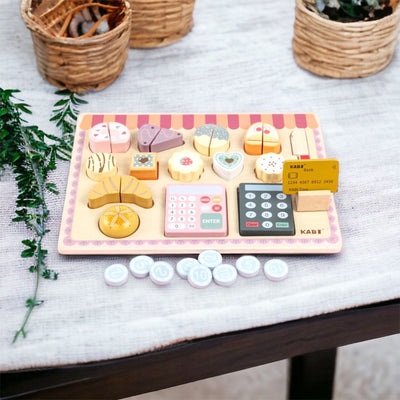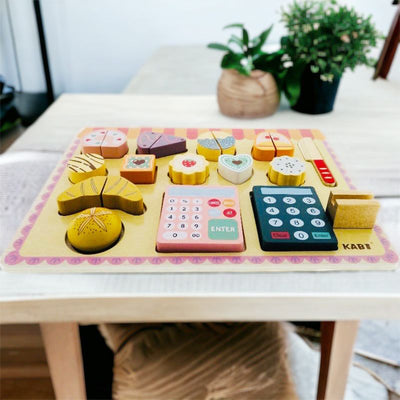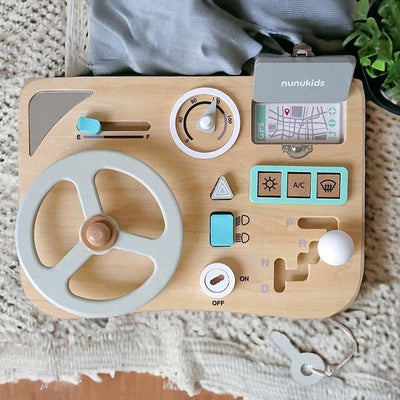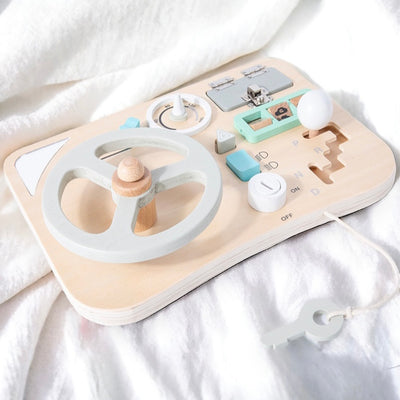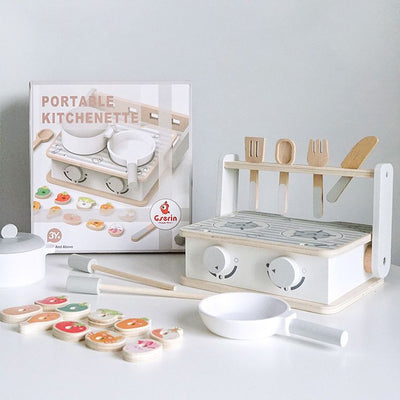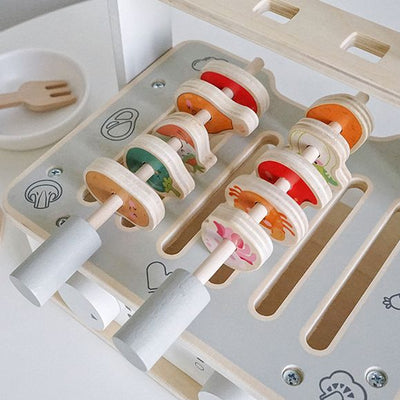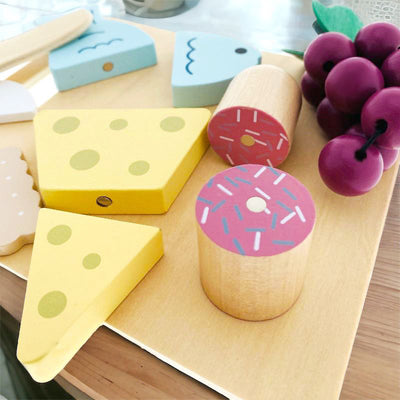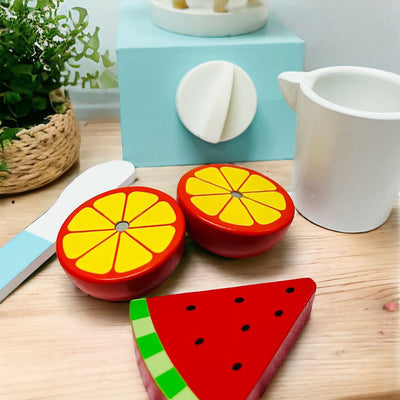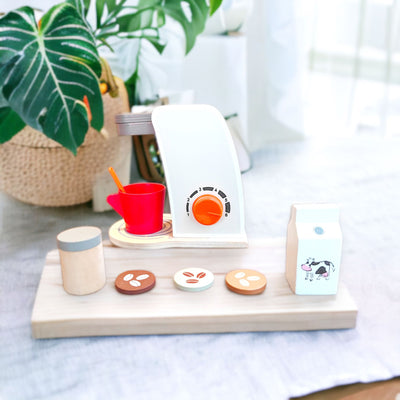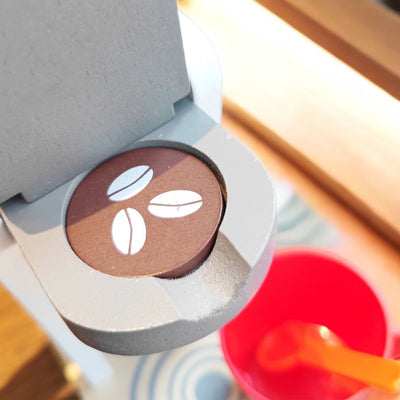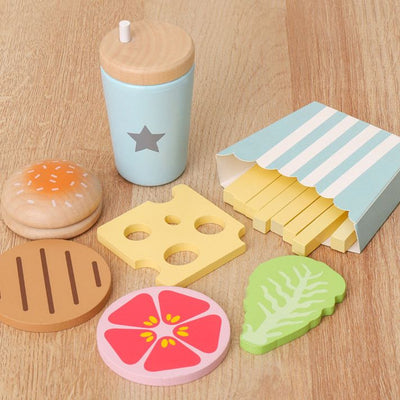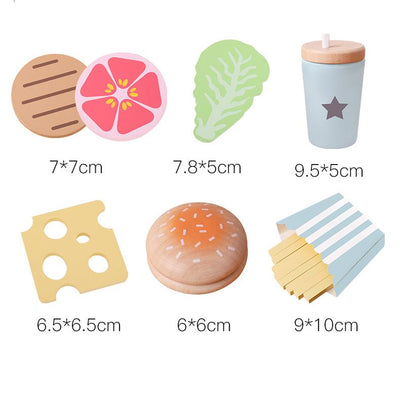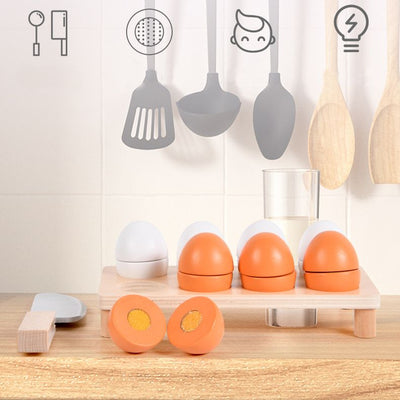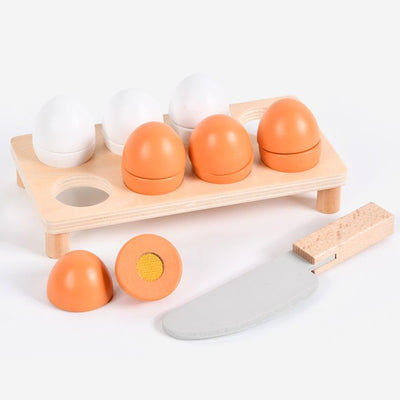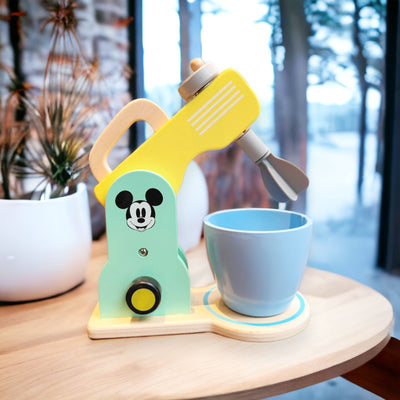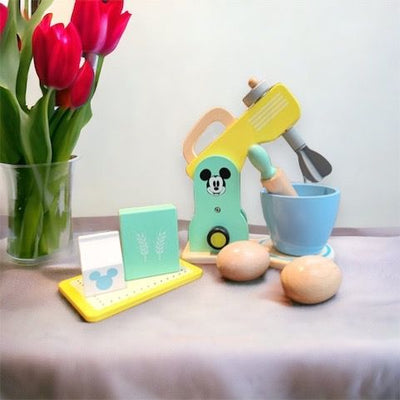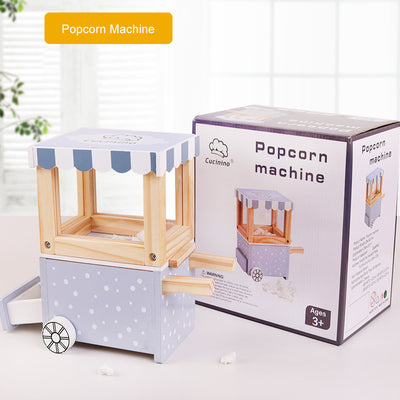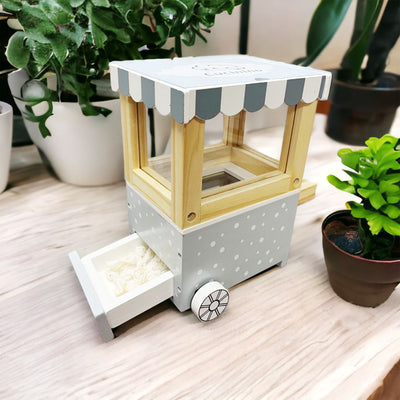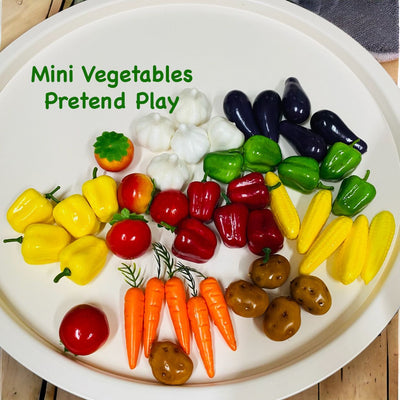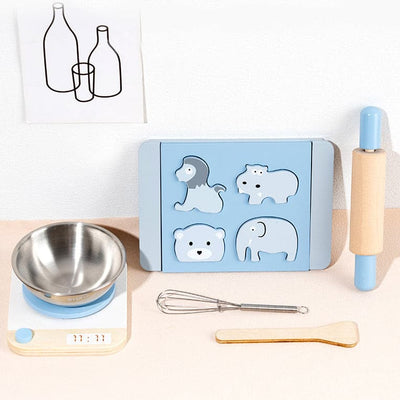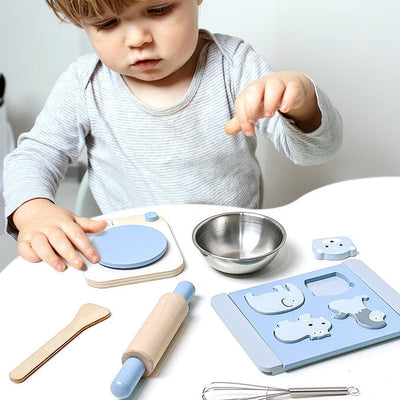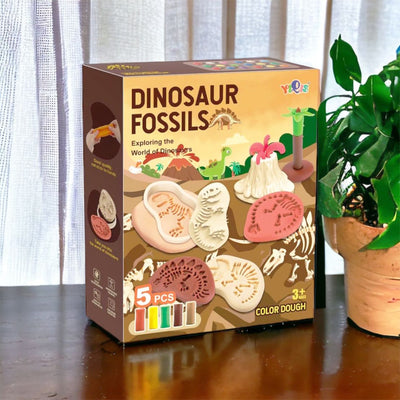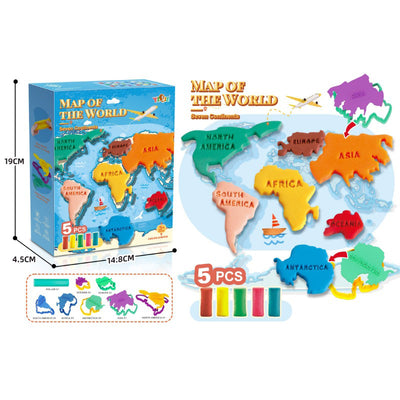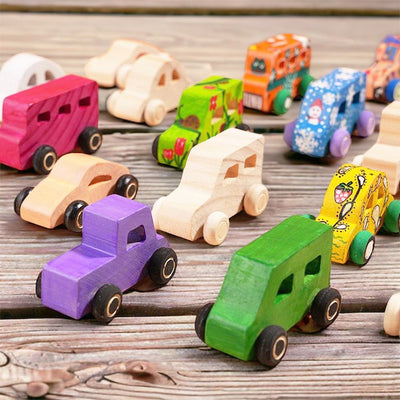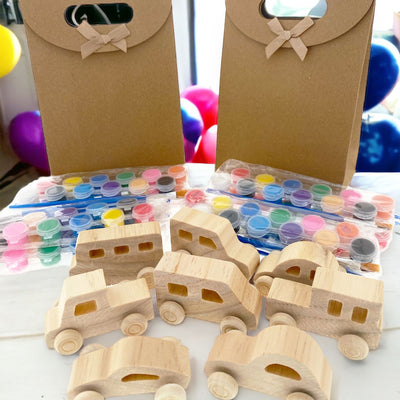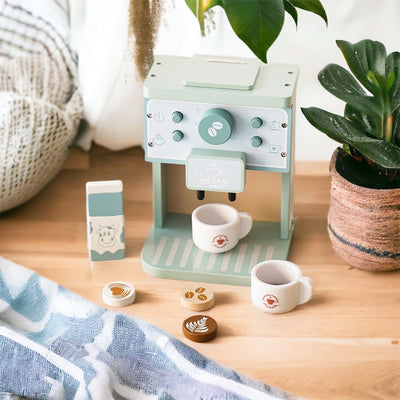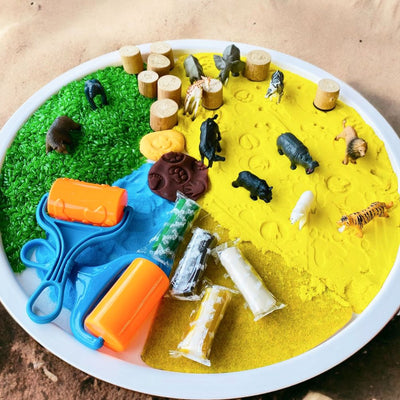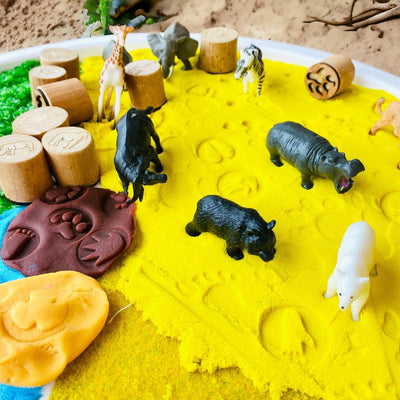Pretend Play Toys Singapore - Role Play Toys For Kids
Pretend play is very important in a child's development. Through pretend play toys, children learn to experiment by being different characters and exploring how people feel and what they say.
They learn how to understand other people and so improve their ability to socialise and develop the thinking and reasoning skills they will need for the rest of their lives. They will build strong communication skills, negotiation skills, confidence, and the ability to make friends, be persistent, and be creative in completing tasks and solving problems.
Even by pretending to play by themselves, they learn to be creative by using their imagination and thinking skills to act out common scenarios they experience or see on a regular basis.
What is Pretend Play?
Pretend play, also known as imaginative play, role play or make-believe play, is a type of play in which children act out scenarios and use their imagination to create different roles, situations, and environments. It is a natural and instinctive way for children to explore the world around them and to experiment with different roles and relationships. Children as young as six months can engage in pretend play, and it becomes more elaborate as they grow older.
In Singapore, there are many toy stores and online retailers that specialise in pretend play toys and role play toys. And we at Happi Bebe are proud to be a premier provider of baby and kids toys in Singapore. When choosing toys for your child, it's important to consider their interests and age range. Younger children may benefit from simpler toys, such as soft toys or dress-up costumes, while older children may enjoy more complex play sets and wooden balancing toys.
The Importance of Pretend Play
Pretend play has been shown to have numerous benefits for child development. This is because engaging in imaginative play helps children develop important skills such as problem-solving, critical thinking, creativity, and empathy. It also allows them to explore and understand different perspectives and roles.
Research has also shown that exploratory play, which includes imaginative play, can have long-term benefits for cognitive development. A study published in the journal Frontiers in Psychology found that engaging in exploratory play during early childhood was associated with better cognitive outcomes in later childhood.
In addition, creative play can also help children cope with stress and build resilience. A Psychology Today article discusses how creative self-expression through play can promote healthy coping strategies and improve mental health.
At Happi Bebe, we understand the importance of role play and pretend play toys in a child’s development. That is why we have a wide range of pretend play and role-play toys for babies and kids in Singapore that parents can choose from to help children grow magnificently.
Benefits of Pretend Play
Engaging in pretend play has numerous benefits for child development. It helps children to develop problem-solving, critical thinking, and creativity skills. Pretend play or role-play allows children to explore and understand different perspectives, roles, and environments, which can foster empathy and social skills. It also provides a safe space for children to experiment with their emotions and ideas.
- Thinking & Memory Skills: Pretend play allows children to use their imagination to create past experiences and act them out. This process helps to strengthen their thinking and memory skills by stimulating their brains to recall, organise and synthesise information. As children engage in pretend play, they need to remember details about their pretend scenarios, including who played what role and what happened in the game. These skills are essential for academic success and lifelong learning.
- Social Skills: Pretend play provides children with a platform to develop their language and vocabulary capabilities. They learn to explain what they are doing, describe events, and engage in pretend play with others. As children engage in pretend play with their peers, they develop communication and socialisation skills, learn to take turns, and practice sharing. They also learn to negotiate, cooperate, and compromise, which are essential skills for successful interpersonal relationships.
- Emotional Control: By acting out different roles or scenarios, children learn to put themselves in other people's shoes, which helps them to understand and identify emotions. Pretend play provides a safe and supportive environment for children to express their feelings and learn to control their emotions. Through role-playing, children can practise managing different emotions and learn how to cope with various situations. This process helps children develop empathy and self-awareness, which are essential skills for healthy emotional development.
- Math & Number Sense: Pretend play provides an opportunity for children to learn maths and number sense in a practical and fun way. For example, when children pretend to be a chef or cashier, they are exposed to numbers and counting. They learn to count money, add and subtract, and understand concepts such as quantities and measurements.
Pretend play offers children a range of benefits that promote cognitive, social, emotional, and academic development. By engaging in pretend play, children develop the necessary skills that are essential for success in school and beyond. Shop with us today and read our latest updates on our contact page for convenient order placement.
Frequently Asked Questions About Pretend Play Toys
1. At what age should kids start to use pretend play toys?
Children can begin engaging in pretend play as early as six months old. You need to give them age-appropriate toys for their safety and proper development. As their pretend play becomes more elaborate between the ages of two and three, their toys should be changed accordingly.
2. Why are pretend play toys important for language development?
Pretend play provides children with opportunities to practise language and communication skills. Furthermore, imaginative play helps children develop vocabulary, grammar, and narrative skills, as well as an understanding of social rules and conventions. It will help them develop a stronger foundation for language and communication skills as they grow.


